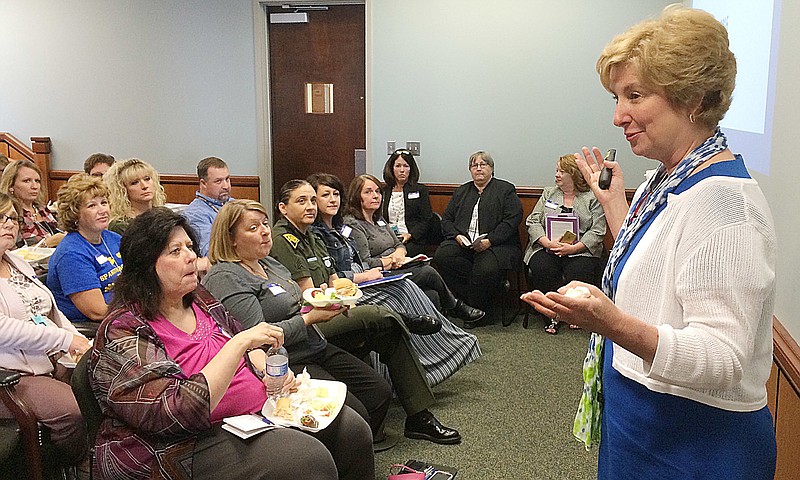PRINCETON, W.Va.-When a child is acting out or not paying attention in school, it might not be because he or she is misbehaving. It might be because a parent was arrested the previous night.
Teachers don't always know about the traumatic events a child experiences at home, but a new program being organized in Mercer County could give teachers notice when one of their students need to be handled with care. Andrea Darr, director of the West Virginia Center for Children's Justice spoke May 6 at Mercer County Family Court to school officials and law enforcement agencies about the program "Handle With Care."
In the program, teachers are alerted when an incident at home, such as domestic violence or the arrest of a parent, could impact a child. They are not given any details about the incident itself, just that a student could use extra attention, Darr said.
She played a 911 recording of child calling the center in Johnson City, Tenn. The child was hiding in a closet while the father was beating the mother.
"Help me! Help me! My daddy is killing my mommy!" the child cried.
"Odds are, where will that child be the next day?" Darr asked the audience. "In school, and you don't know about (the incident.)"
Instead of focusing on lessons or doing homework, the child is reliving the traumatic incident. "They're wondering where they will go to sleep at night, where their siblings are, and you're asking, 'What's three plus eight?'" Darr stated.
In the pilot Handle With Care program, officers investigating a domestic violence call or any other case involving a child notified the local 911 center, which then passed the information to the local school system, which then notified school principals. Teachers and counselors received the Handle With Care notices only on a need to know basis, Darr said.
The officer only sends the child's name, age, and school. No details about the crime are shared.
"All the teacher would need to know is to be proactive rather than reactive," Darr stated. Teachers are taught to see the signs
of childhood trauma.
Darr also discussed having law enforcement agencies build relationships with students by visiting schools. This way, children get to know about police officers and see them in situations in which nothing bad is happening.
"Let them see you in a different way," she said.

